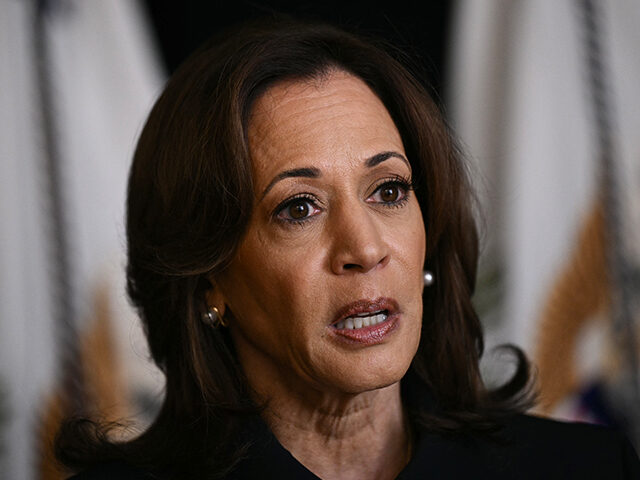The far-left New York Times disgraced itself Monday by clearing sitting Vice President Kamala Harris of obvious and blatant plagiarism. Now the expert used by the Times to exonerate Harris says he did not do a full analysis.
Monday afternoon, journalist Christopher Rufo dropped the bombshell that Harris “plagiarized at least a dozen sections of her criminal justice book, Smart on Crime.”
The 2009 nonfiction work, coauthored with Joan O’C. Hamilton, was written while Harris was the district attorney of San Francisco and gearing up to run (successfully) for California’s attorney general.
With the help of Dr. Stefan Weber, an internationally famous “plagiarism hunter,” Rufo provided one jaw-dropping example after another of Harris directly copying and pasting paragraph after paragraph into her book that were written by others. She did this without attribution or quote marks. In other words, she not only stole text from other sources, but she also stole ideas, reporting, and scholarship. That is textbook plagiarism.
Additionally, per Rufo, “Harris copied virtually an entire Wikipedia article into her book without providing attribution to Wikipedia” [and] “fabricated a source reference, inventing a nonexistent page number.”
Kamala has been caught red-handed. There is no defending this. Nevertheless, while reporting on the Rufo bombshells, I warned Breitbart News readers that the “corporate media will almost certainly either ignore this scandal or attempt to wrist-flick and ‘fact check’ it away as a ‘Republican-fabricated controversy.’
Within just a few hours, that is precisely what the New York Times did. “Conservative Activist Seizes on Passages From Harris Book,” reads the easily predicted Times headline.
Even more predictable… The Times article lied to its readers to protect Kamala:
The passages called into question by Mr. Rufo on his Substack platform involve about 500 words in the approximately 65,000-word, 200-page book. Ms. Harris, the Democratic presidential nominee, wrote the book with another author when she was the district attorney in San Francisco.
In a review of the book, The New York Times found that none of the passages in question took the ideas or thoughts of another writer, which is considered the most serious form of plagiarism. Instead, the sentences copy descriptions of programs or statistical information that appear elsewhere.
Then comes this beauty… The Times enlisted its own plagiarism expert to back its claim that this is no big deal:
Jonathan Bailey, a plagiarism consultant in New Orleans and the publisher of Plagiarism Today, said on Monday that his initial reaction to Mr. Rufo’s claims was that the errors were not serious, given the size of the document.
Then the Times accused Rufo of racism.
But now the Times’ lies are all coming undone.
First, Rufo torpedoed the Times’ primary defense:
The Times claims that I only argued that Kamala Harris plagiarized “five sections” involving “about 500 words.” But this isn’t true. In my story, I wrote that Stefan Weber argued there are “more than a dozen” instances of “‘vicious plagiarism.’” This past Saturday, I provided the Times not only with my written analysis, which argues that there are “more than a dozen,” but with Weber’s full dossier, which included 18 allegations of varying severity. So, the Times deliberately withheld this crucial contextual information from its readers and from the supposed plagiarism expert, who, based on this limited information, called it “not serious.” They could have easily confirmed the “more than a dozen” point, but instead, lied by omission.
Further, Rufo posts passages he said he gave directly to the Times that make mincemeat out of the claim “that none of the passages in question took the ideas or thoughts of another writer[.]” The fact she cut and pasted a Wikipedia page alone kills that defense.
And then the bottom fell out of the Times’ lies when its own expert, the aforementioned Jonathan Bailey, took to Xwitter Monday to confirm he had not done a fully analysis of the book and that his “quotes were based on information provided to me by the reporters and spoke only about those passages.”
The problem for Bailey is that if he looks at all the material Rufo provided and concludes she’s guilty of plagiarism (which she most definitely is), if he speaks that truth out loud, he’ll be personally and professionally ruined. If he lies and says Kamala is not guilty of plagiarism, everyone will know he lied, even those who want him to, and his reputation will never recover.
John Nolte’s first and last novel, Borrowed Time, is winning five-star raves from everyday readers. You can read an excerpt here and an in-depth review here. Also available in hardcover and on Kindle and Audiobook.




